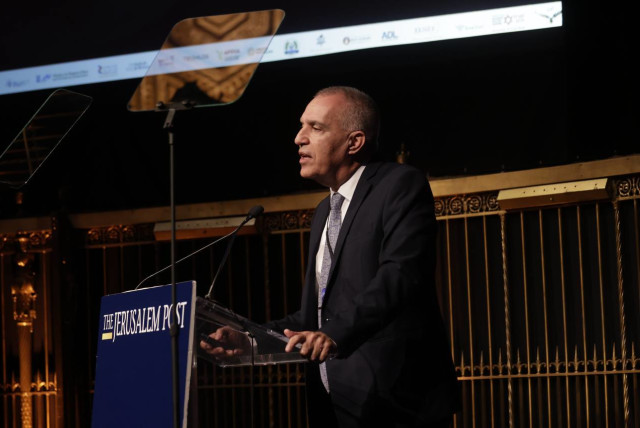Educational process for engineers must change - Afeka College president
The most important skills named by hi-tech companies seeking engineers are multi-disciplinary personal skills. Prof. Ami Moyal said.
Professor Ami Moyal, president of Afeka Academic College of Engineering in Tel Aviv, said that the education of engineers must change.
Speaking at The Jerusalem Post Conference in New York on Monday, Moyal said that technological development is advancing at an exponential rate, noting that the ChatGPT artificial intelligence app has more than one hundred million users.
The entire economy, he said, is turning towards STEM – science, technology, engineering and mathematics, and more products and services will be based on technology, even non-technical employees will need a certain level of STEM proficiency.
Nevertheless, he said, the most important skills named by hi-tech companies seeking engineers are multi-disciplinary personal skills, such as teamwork, critical thinking, self-learning and effective communication.
How has Afeka tackled educational challenges in STEM?
Afeka has addressed these issues, said Moyal, by updating its curriculum, adding vital skills as learning outcomes of the courses and modifying its pedagogical methods. Many classes are no longer taught by traditional frontal lectures. Instead, courses are taught through project-based learning, both in and outside the classroom setting, through extracurricular activities and partnerships, forming an ecosystem that includes industry, the educational system, NGOs, military and security, municipalities, hospitals and more.
“We implemented a profound multiyear institutional change that will never end,” said Moyal, “because the world around us is changing constantly.”
Moyal announced that in the next three months, Afeka, in partnership with the Tel Aviv-Jaffa Municipality, will begin construction of an innovative, state-of-the-art campus in south Tel Aviv that will enable it to incorporate these new educational methods used in training the engineers of tomorrow, calling it “a forward-looking academic journey with national, socioeconomic and urban impact. Our new campus will have important consequences, not only for Afeka but for the nation, the hi-tech industry and the city of Tel Aviv,” he said.
Afeka’s south Tel Aviv campus is expected to be completed by 2026, and while the college has raised a significant amount of the required funds for its construction, Moyal said that it is looking for philanthropic partners to assist in its development.

